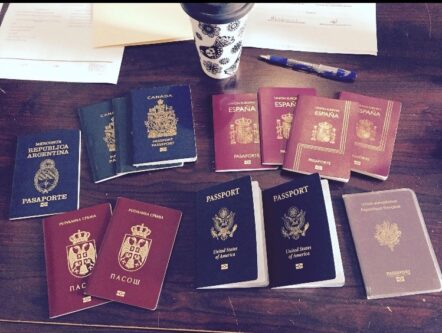
Recently a post and video about Mexico deporting Americans out of Mexico showed up on Twitter. The post commented (“Mexico is now deporting Americans back to the US. Undocumented Americans moving to Mexico for a lower cost of living is causing inflation in Mexico.)”. While some thought this was fake, the truth is there is a complex situation going on in Mexico right now. Some of what was mentioned is sort of true and we will break it down in this article.
Are some Americans (and other foreigners) living illegally in Mexico?
The short answer is yes. But how can this be? You cannot enter Mexico illegally or cross the border undetected. You can however take advantage of Mexico’s generous tourist visa. Mexico offers a tourist visa up to 180 days (6 months) for people visiting the country. The visa is free and automatic. Yes, at times immigration at airports can limit tourist visas to as little as a few days or weeks, but the vast majority are an automatic 180 days.
This means that you can go as a tourist, stay for 180 days, leave for a short while and return for another tourist visa. There is no guarantee that you will get 180 days each time, but this is the loophole that many use to live in Mexico, on a tourist visa. Some like this easy visa policy because they can spend part of the year in Mexico and part in their home country. Others bypass getting a residential visa and just opt for the tourist visa. However, there are not many guardrails if you don’t get let in for the time you want. There are also new laws that make this “living” in Mexico with a tourist visa harder. We will talk about this more in this article below.
So, for years many foreigners have been “living” in Mexico as a tourist. This has raised a lot of legal issues that Mexico is slowly focusing on. Mexico cannot take a hard stand on this because there are many that come for a few months to live and return to their home countries each year. Also getting a residential visa does have a cost in both money and time. You need to start the process in your home county and then continue the process in Mexico. It can take months to get it all sorted out.
Why does Mexico have such an open tourist visa program?
Why does Mexico have such an easy visa policy? Mexico benefits from tourism and tourism dollars. Tourism is around 8.5% of the GDP for Mexico. This is about on par with many popular tourist destinations in the world, however Mexico also derives a lot of growth from real estate sales. Mexico allows foreigners to purchase property fairly easily. Infact some 1/2 million Americans own property in Mexico and around 1,000,000 Americans are living in Mexico (in addition to all the other foreigners).
Construction and property sales drive huge portions of the economy as well. In Mexico construction accounts for around 7.3% of the economy and in the state of Quintana Roo where the Riviera Maya is, construction accounts for 12.4% of the economy. Compare this to the US where construction is around 4.5% of the GDP or France at 6%. Certainly not all the construction is for tourism or bought by foreigners, but the two go hand in hand. You might have heard of Tulum? Where there are currently over 300 construction projects which are mostly condo buildings that are for tourists and bought by Mexican investors and foreigners.
For decades Mexico has poised itself as a touristic destination and has had fairly open arms for tourism to come. Not only the income directly related to tourism, but the millions of dollars that come with building, short term rentals, and purchases. However, in recent years we have started to hear from Mexicans that complain about the effects of tourism both legal and “grey area legal”.
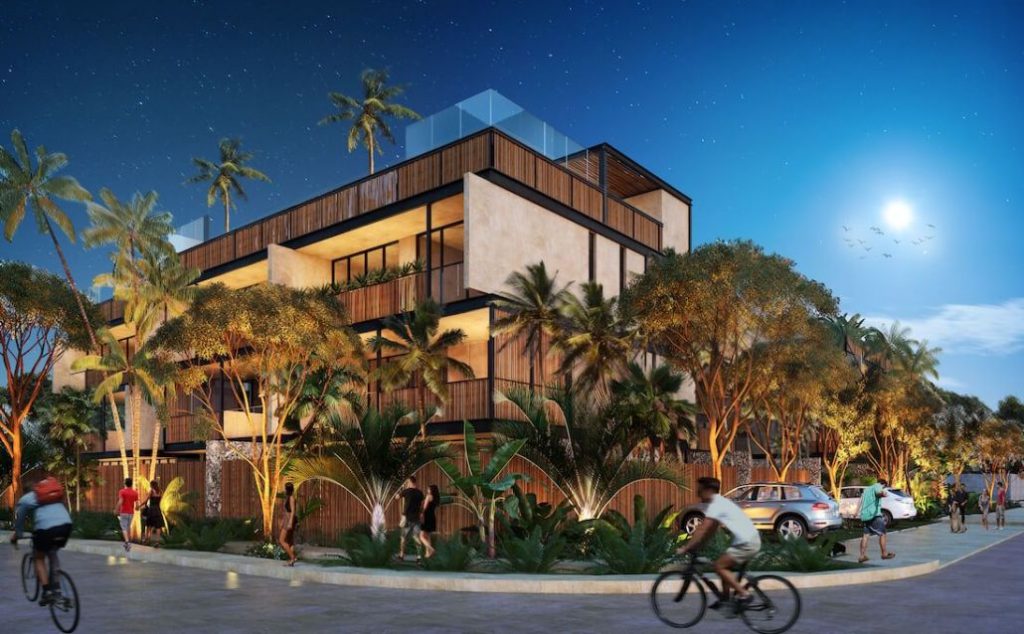
Mexico is one of the most welcoming countries in the world, but….
I personally have visited about 50 countries in the world. Some countries are known as the land of smiles and others are known to be a little snobby toward some tourists. I have found Mexico to be one of the most welcoming countries. Mexico not only welcomes tourists with a warm embrace, but it also welcomes foreigners as part of the community. For decades millions of foreigners have lived for a while or are living in Mexico, many because of the warmth of the people. Foreigners have felt welcome and have enjoyed the fairly easy process to become a resident or travel for extended amounts of time in the country. It is only in the past few years that we have started to hear comments in a negative way about the impact of foreigners have on society and the negative impacts economically on Mexicans.
What are we hearing? Here is a list in order of what grievances Mexicans are having with the impact of tourism and immigration.
- Cost of housing is going up.
- Cost of living going up and not as accessible.
- Arrogance of foreigners that want to change things or impose their ideas.
- How money influences everything, mostly targeted at foreigners with money. This is also mostly targeted at foreign owned businesses and housing investment.
How are these things affecting Mexicans?
Let’s take a look at the tourist destination of Playa Del Carmen in the Riviera Maya. There is no doubt that tourism is the main economic driver of the area. From the mega all-inclusive hotels to the large eco parks, almost everything is related to tourism in Playa Del Carmen. Many foreigners like the area and choose it as a place to live part time, full time, or plan to retire in the area. To many it means buying a condo and renting it out when not using it. Because the economy is decent and tourism is strong, many people have made good returns on their investments.
In the past decade we have seen the mixed neighborhoods of the downtown area turn into Airbnb and digital nomad communities. Locals that could rent in the center are priced out because owners see more profit in short term rentals. What would have been an apartment for a mid-level working Mexican has now doubled in price. Most locals now live outside of the downtown which results in more commute time and put stress economically on locals.
The level of services has gone up, raising prices out of reach for working class Mexicans. For example, most local Mexicans make between $15-$50 USD a day with average being around $40 USD a day in the Riviera Maya. In many of the restaurants in the downtown it costs a minimum of $10 USD to have a meal. This means that many of the things accessible to tourists are not affordable to locals. In parts of Mexico that are mainly touristic destinations, this has created a divide. Unlike other parts of Mexico where you can find locals and foreigners eating in the same restaurant.
How laws are changing to regulate immigration and tourism
We have already mentioned that many foreigners purchase property in Mexico and often rent it out when not using the property. This is usually done through rental platforms. In 2020 Mexico started to regulate this market because many people did not pay taxes in Mexico. The new regulations meant that owners needed to pay taxes, which many were not paying in Mexico. It also meant that since you are running a rental business in Mexico, people needed a Mexican tax ID number. We wrote about this change in Airbnb taxation here. This was one step that Mexico took which regulated more the vacation rental market.
Remember the open tourist visas that many come to Mexico on? It is a tourist visa for tourists, yet some try to make it work as a residential visa. Some want to buy a car on a tourist visa. Why would tourist need to buy a car? Yes, some might want to drive cross country and sell the vehicle, but the laws are not set up for tourist to register a car that do not live in the country. There have been grey areas and ways of working around the regulations, but this is where things are gradually changing.
Another recent requirement from the Mexican authorities is a tax Id number for those conducting commercial activities in Mexico. The RFC number is a unique tax ID that is similar to a social security number of EIN. This RFC number is needed for other things as well, like opening a bank account, or buying or selling property in Mexico.
These are some of the main examples that Mexico is doing to regulate the flow of money and offer residents benefits that will not apply to tourists.
Why some foreigners find it hard to get into Mexico
Mexico sets standards for immigration. There are people that get refugee status or visas to enter for political asylum, but the vast majority are put into two residential categories. There is a temporary residential visa and permanent residential visa. These two types of residential vias have financial requirements. Since these visas do not automatically allow you to work in Mexico, you need to be able to provide for yourself. The temporary visa is good for one year and can be extended up to 4 years. After that you can switch to the permanent visa. The requirements for a temporary visa are a combined balance of about$ 73,000 USD in your account or proof of payments that equal $4,394 USD a month from sources outside of Mexico.
The permanent visa requires a balance of $272, 941 USD or a monthly income of about $7,323 USD. This visa is usually offered to those already retired or those that have completed 4 years of the temporary visa.
These requirements have been going up in recent years and have made it harder for some that wish to live in Mexico, but do not have the funds. So, this has made some decide to “move” to Mexico on a tourist visa. They live part of year and the leave for a short while and return. However, Mexico does not want a drain on services nor competition for jobs in Mexico when so many Mexicans need work. It is the people that are working around the visa requirements that can get trapped because they do not have legal residential status in Mexico.
See out article about getting a visa for living in Mexico here if you would like more information from a local immigration specialist.
Is Mexico deporting Americans and foreigners?
Mexico does deport people. In the first three months of 2024 Mexico has deported some 8,612 people. How many from the US? The total was 96 people. Most of these were for criminal charges. The main focus of the Mexican government is keeping out people that are not legally in the country, illegally working in the country and or have committed crimes. The vast majority of people deported was the 2,167 from Central American countries. Of course, deportation is not the same as getting denied a longer entry for a tourist visa because you entered a lot as a foreigner without a residential visa.
Mexico is reforming and recent presidents have moved forward with reforms to keep Mexico in line with global economies. Legal standards have been changing and this has excluded some that want to be living in Mexico. However, Mexico is not deporting people out of spite nor are many getting caught without a proper residential visa and being sent back to where they came.
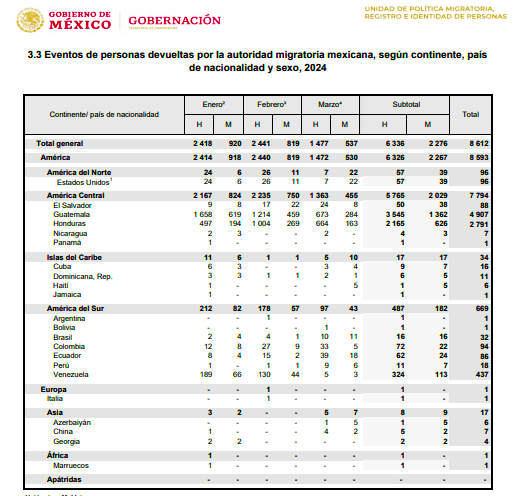
Is Mexico’s attitude toward foreigners changing?
We have said Mexicans are some of the most welcoming people in the world. However, we have seen a slight change in the past few years. It is not noticeable to most people that are visiting or even to some that are living in Mexico. Many will never experience no backlash or rude comments. However, when people start posting slogans like “It is not paradise if you cannot afford to live there” and the commenting about foreigners raising prices or posts online with negative comments against foreigners, it does show attitudes are changing. This is the point we would like to make because often problems don’t get noticed until they are an issue.
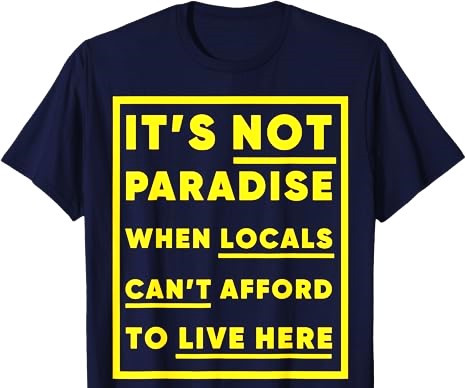
As more foreigners move to Mexico, the more impact they have. Also, the more foreigners that move to Mexico, the wider the range of people that come. There are people looking to have a good life and integrate into society and others that see Mexico and a place to make money off the backs of others and they think they can do anything they want. For the most part, those that choose to live in Mexico love the culture, people and climate.
It is illegal for foreigners in Mexico to protest or be involved in politics. It is not illegal to offer suggestions, help communities, volunteer, and be a positive influence on society. For the most part, foreigners have added positive contributions to Mexico. There are however a few that make for bad examples. To keep Mexico a welcoming place it is important to understand the culture and how society works. Of course, everyone has a different view of what it is like to live in Mexico and how to act. Hopefully Mexico continues to be a welcoming place so more people can come and experience it.
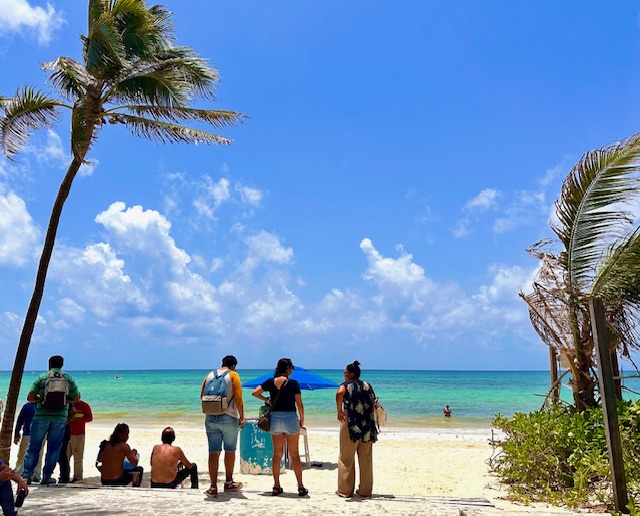


Be the first to comment